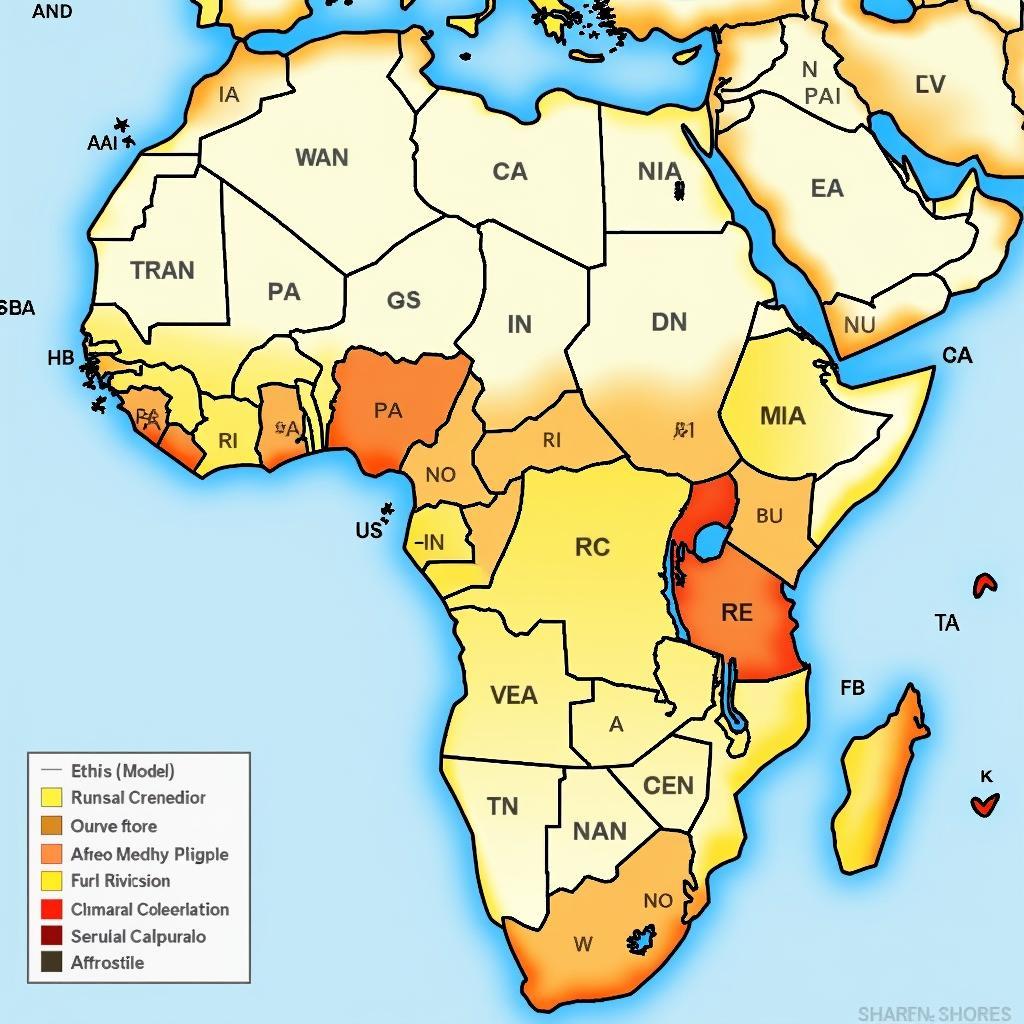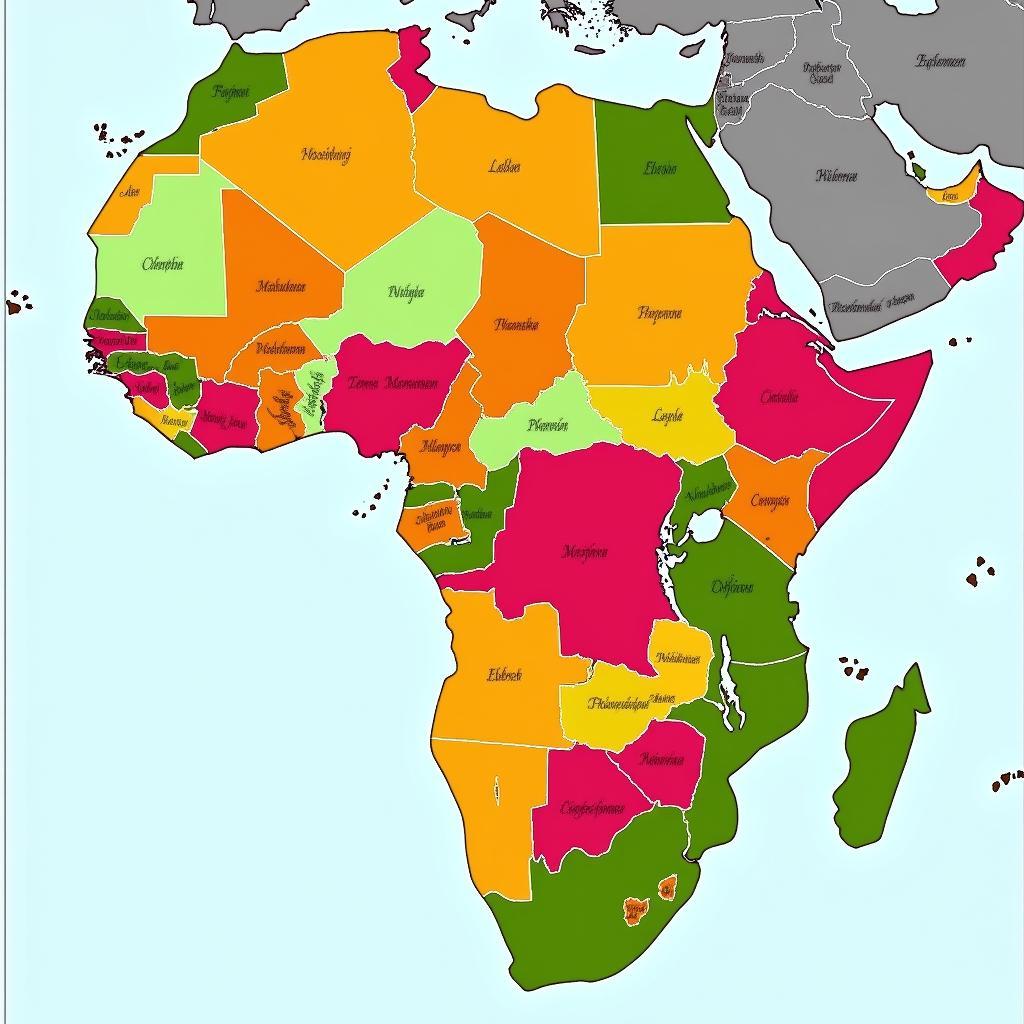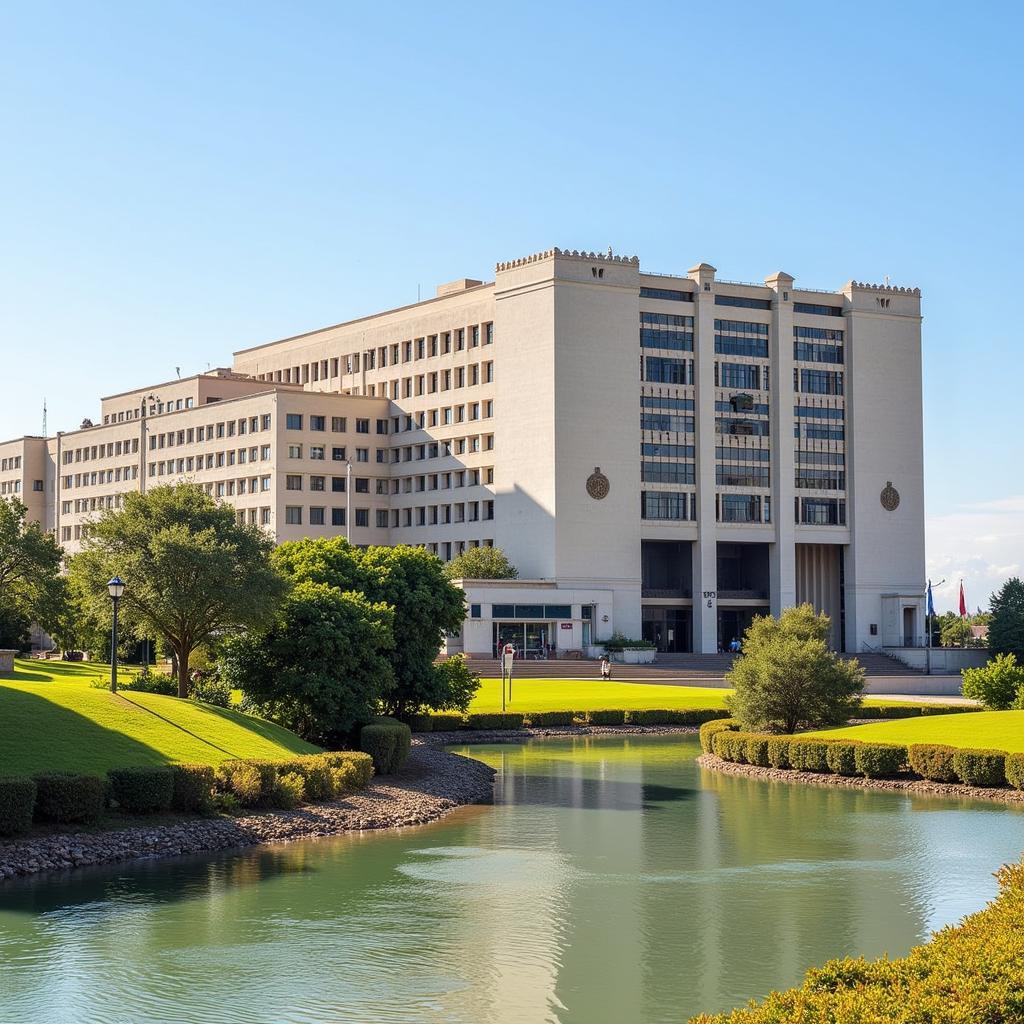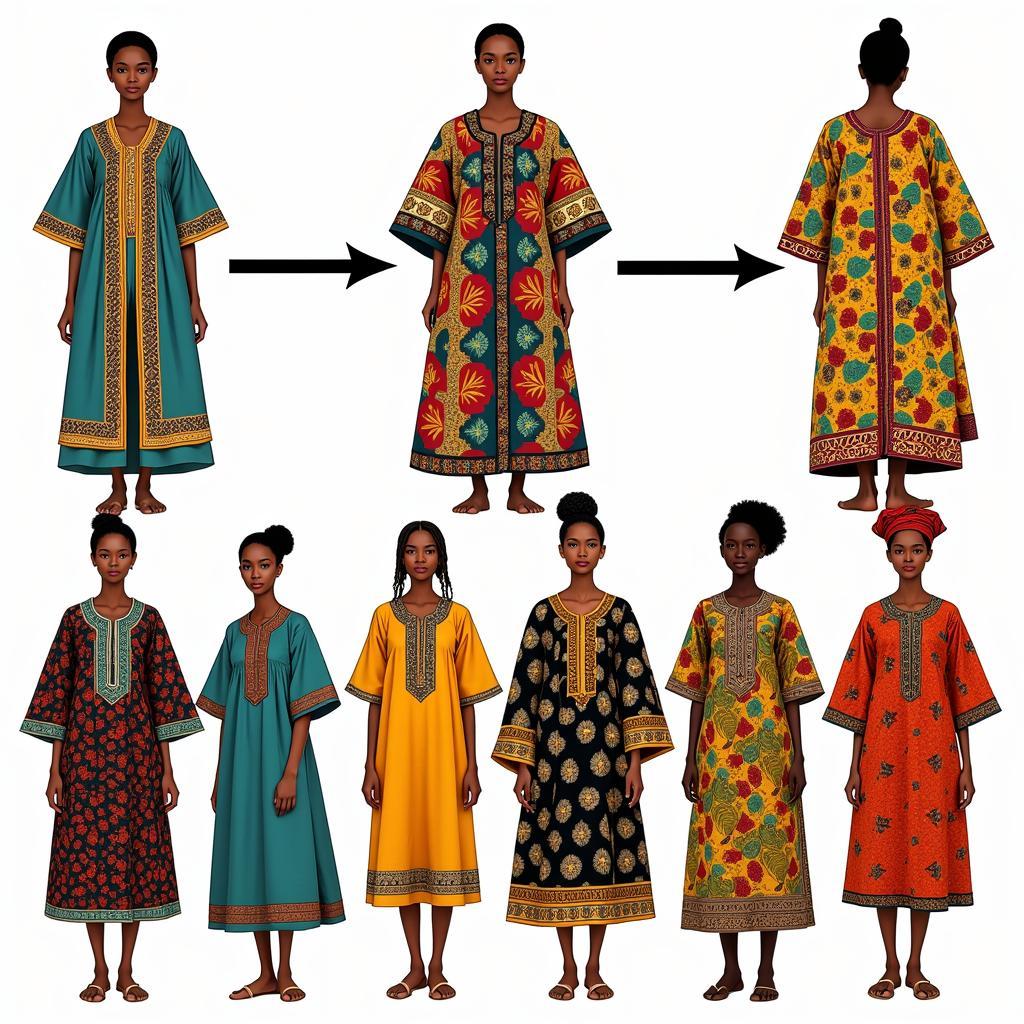Unraveling the Impact of African Arbitrary Borders
The legacy of colonialism etched across the African continent manifests most clearly in its arbitrary borders. These lines, drawn with little regard for pre-existing ethnic, cultural, or linguistic boundaries, continue to shape the political, social, and economic landscape of Africa today. This article delves into the complexities of these borders, exploring their historical origins, ongoing consequences, and potential future implications.
The Berlin Conference of 1884-85, a pivotal moment in African history, saw European powers carve up the continent amongst themselves. This scramble for Africa, driven by economic and political ambitions, resulted in the creation of artificial states, often encompassing diverse and sometimes conflicting groups. These hastily drawn lines disregarded centuries of established communities, trade routes, and cultural exchanges, leading to a multitude of challenges that persist to this day.
The Historical Context of African Arbitrary Borders
The imposition of these arbitrary borders disrupted traditional systems of governance and social organization. Pre-colonial Africa was a mosaic of kingdoms, empires, and smaller communities, each with its own unique political structures and social hierarchies. The arbitrary borders imposed by European powers often divided these existing entities, grouping disparate groups together and separating others who shared common heritage. This disruption continues to fuel ethnic tensions and conflicts in many parts of Africa. Just after gaining independence, many African nations struggled with internal conflicts, often rooted in these arbitrarily drawn boundaries. You can read more about the African freedom movement for a deeper understanding.
The Berlin Conference and its Lasting Impact
The Berlin Conference, while aiming to regulate European colonization and trade in Africa, ultimately served to legitimize the arbitrary division of the continent. The conference participants, with no African representation, prioritized their own interests, paying little heed to the long-term consequences of their actions. This disregard for African self-determination has had a profound and lasting impact on the continent’s development. The arbitrarily drawn borders created artificial states that lacked internal cohesion and were often plagued by instability. This instability, in turn, hindered economic growth and social progress. The effects of colonization can be further explored by examining which African countries and their colonizers shaped the current political landscape.
 Map of Africa showing the arbitrary borders drawn during the Berlin Conference
Map of Africa showing the arbitrary borders drawn during the Berlin Conference
The arbitrary borders also disrupted pre-existing economic systems. Traditional trade routes, which had connected different regions and facilitated economic exchange, were often severed by the new borders. This disruption hindered economic development and contributed to poverty in many areas. The arbitrary demarcation of territories often led to disputes over resources, further exacerbating tensions and conflicts between neighboring states. Understanding the historical context is crucial for grasping the current state of African countries’ human rights.
Consequences of African Arbitrary Borders
The arbitrary borders continue to pose significant challenges for African nations. They fuel ethnic tensions, hinder economic integration, and complicate efforts to address shared challenges such as climate change and resource management. These artificial divisions have created a sense of fragmentation and hindered the development of a pan-African identity.
Ethnic Tensions and Conflicts
One of the most significant consequences of the arbitrary borders is the persistence of ethnic tensions and conflicts. By grouping disparate ethnic groups within the same state, the colonial powers created artificial competition for resources and political power. These tensions often erupt into violent conflicts, undermining stability and hindering development. You can refer to the African countries fight list for a clearer picture of these conflicts.
 Map of Africa showing the distribution of ethnic groups across arbitrary borders
Map of Africa showing the distribution of ethnic groups across arbitrary borders
Obstacles to Economic Integration
The arbitrary borders also create significant obstacles to economic integration. Trade and movement of people are often restricted by border controls and differing regulations, hindering economic growth and development. The lack of infrastructure connecting different regions further compounds these challenges. The arbitrary division of resources also creates disputes between neighboring states, impeding regional cooperation. For a detailed account of British influence, you can look into African independence from Britain.
Moving Forward: Rethinking African Arbitrary Borders
While the arbitrary borders pose significant challenges, there is also growing recognition of the need to address these issues. The African Union has played a crucial role in promoting regional integration and fostering cooperation between member states.
The Role of the African Union
The African Union has championed the cause of African unity and integration. It has facilitated dialogue between member states and promoted initiatives aimed at resolving border disputes and fostering greater cooperation. The AU also advocates for greater investment in infrastructure and the removal of trade barriers to promote economic integration.
 Image of the African Union headquarters
Image of the African Union headquarters
Fostering Regional Cooperation
Regional cooperation is essential for addressing the challenges posed by arbitrary borders. By working together, African nations can overcome the obstacles to economic integration and build a more prosperous and stable future. This includes sharing resources, coordinating infrastructure development, and harmonizing regulations.
Conclusion
The arbitrary borders imposed on Africa during the colonial era continue to shape the continent’s political, social, and economic landscape. While these borders present significant challenges, they also offer an opportunity for African nations to work together to build a more integrated and prosperous future. By fostering regional cooperation and promoting Pan-Africanism, Africa can overcome the legacy of colonialism and create a future based on shared prosperity and mutual respect.
FAQ
- What was the Berlin Conference?
- How did arbitrary borders affect pre-existing political structures in Africa?
- What are the main consequences of arbitrary borders in Africa today?
- What is the African Union’s role in addressing these issues?
- How can regional cooperation help overcome the challenges of arbitrary borders?
- What are some examples of ethnic conflicts caused by arbitrary borders?
- What are the economic implications of these borders?
Need Support?
For any assistance, please contact us via Phone: +255768904061, Email: [email protected] or visit our office at Mbarali DC Mawindi, Kangaga, Tanzania. We have a 24/7 customer service team.


